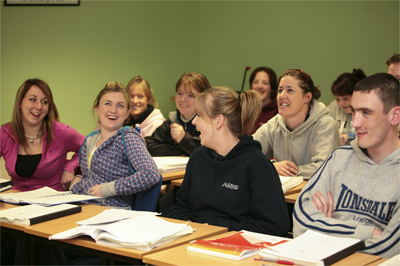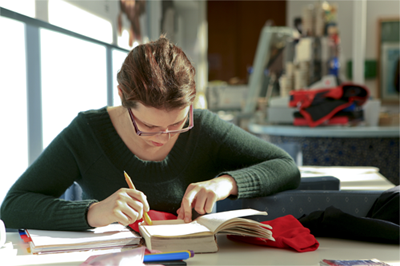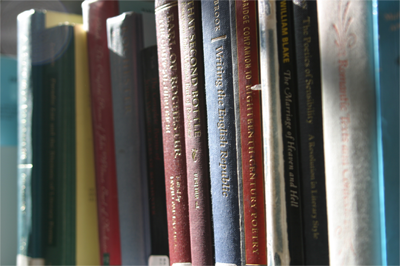-
Courses

Courses
Choosing a course is one of the most important decisions you'll ever make! View our courses and see what our students and lecturers have to say about the courses you are interested in at the links below.
-
University Life

University Life
Each year more than 4,000 choose University of Galway as their University of choice. Find out what life at University of Galway is all about here.
-
About University of Galway

About University of Galway
Since 1845, University of Galway has been sharing the highest quality teaching and research with Ireland and the world. Find out what makes our University so special – from our distinguished history to the latest news and campus developments.
-
Colleges & Schools

Colleges & Schools
University of Galway has earned international recognition as a research-led university with a commitment to top quality teaching across a range of key areas of expertise.
-
Research & Innovation

Research & Innovation
University of Galway’s vibrant research community take on some of the most pressing challenges of our times.
-
Business & Industry

Guiding Breakthrough Research at University of Galway
We explore and facilitate commercial opportunities for the research community at University of Galway, as well as facilitating industry partnership.
-
Alumni & Friends

Alumni & Friends
There are 128,000 University of Galway alumni worldwide. Stay connected to your alumni community! Join our social networks and update your details online.
-
Community Engagement

Community Engagement
At University of Galway, we believe that the best learning takes place when you apply what you learn in a real world context. That's why many of our courses include work placements or community projects.
School of Psychology
School of Psychology
Welcome. The School of Psychology is housed in a purpose-built facility in the centre of campus. We are dynamic, innovative and recognised for our teaching, research, and community contribution. We have a suite of professionally accredited undergraduate and postgraduate (Higher Diploma, Masters and PhD) programmes. We also have two active and successful research streams: Brain & Behaviour, and Health & Wellbeing. Researchers from both have participated in acquiring major national and international funding awards and we continue to develop a strong profile in quantity and quality of research output.
Latest University News
25 February 2026
University of Galway welcomes Government funding for new School of Medicine Building
University of Galway has welcomed the award of Government funding to progress the development of a new School of Medicine Building and support the expansion of healthcare education.
The investment was announced by Minister for Further and Higher Education, Research, Innovation and Science, James Lawless T.D., as part of a €75million capital programme which is being made available through the Healthcare Education Activation Programme (HEAP) under Project Ireland 2040.
The Government funding supports the building of the new School of Medicine Building at University of Galway, as well as a new Masters in Pharmacy programme, which is in its first year, and a new Graduate Entry Medicine (Rural and Connected Health) degree which is due to commence in September 2027.
The University’s new School of Medicine Building is to be built on the south campus, a short distance from the Quadrangle, where it will join the Block E building, a protected structure of historical and architectural significance.
The new building development complements the expansion of healthcare courses at University of Galway - the five-year MPharm, which commenced in September 2025 and will offer 75 student places at full roll-out, and the new Graduate Entry Medicine (Rural and Connected Health) programme which is due to begin in September 2027 to address critical medical workforce deficits, with 48 places available for students at full roll-out.
Professor David Burn, President of University of Galway, said: “Government funding for University of Galway to expand of healthcare education and state-of-the-art teaching and learning facilities is a strong acknowledgement of the role which our institution plays both regionally and nationally. I would like to thank Minister Lawless, the Department and the Higher Education Authority for the support. This investment in University of Galway ensures we are primed to play a critical role in the development of the next generation of healthcare specialists and leaders.”
Dr Martina Ni Chúlain, Director of Strategic Development at the College of Medicine, Nursing and Health Sciences at University of Galway, said: “With investment of this nature and our planned developments in healthcare teaching and learning at University of Galway, we are turning our strategy into action. This new medical school building strengthens our established position as a national and international leader in medical education and research, further advancing the student experience, the excellence of our academics and researchers and delivering meaningful benefits for our region, for patients and for the wider health sector.”
Professor Robert Scully, Programme Director of the new Graduate Entry Medicine, said: “This new facility represents a transformative investment in the future of medicine and health sciences at the University of Galway. Designed as a vibrant, co-located hub for interdisciplinary learning and discovery, it enables us to deliver medical and healthcare education through cutting-edge, technology-enabled teaching practices and redefines how we prepare the next generation of healthcare professionals.”
Professor Laurence Egan, Head of the School of Medicine at University of Galway, said: “The new School of Medicine Building will not only transform how we teach and learn, but also strengthen the way we collaborate across disciplines and engage with our healthcare partners. It will foster a model of medical education that champions innovation, teamwork, and a deep connection to the evolving healthcare needs of our region and beyond.”
The University secured planning approval for the development of the new School of Medicine Building last September. The building design runs over four storeys, covering approximately 3,925sq metres, and is integrated, via a glazed atrium link, with the existing Block E building, a protected structure of historical and architectural significance.
It will offer state-of-the-art facilities for teaching and research, including tutorial, seminar and meeting rooms, study spaces and collaboration areas, advanced research laboratories and administration offices.
As part of the University’s broader sustainability goals, the design includes plant systems and solar PV panels to enhance energy efficiency and reduce environmental impact.
Ends
24 February 2026
University of Galway marks fourth anniversary of invasion of Ukraine
Public events held on themes of remembrance, culture and debate
University of Galway has marked the fourth anniversary of Russia’s full-scale invasion of Ukraine with a series of public events on campus bringing together remembrance, film, literature, art and political reflection.
The special anniversary programme was organised as part of the University’s involvement in the Global Coalition of Ukrainian Studies, an international initiative coordinated by the office of the President of Ukraine.
The events took place on Monday February 23rd and Tuesday February 24th, opening with a special screening of the Sundance Film Festival award winning documentary 2000 Meters to Andriivka.
The programme also saw the unveiling of the Ukraine Shelf, a dedicated collection of Ukrainian literature and scholarship in the University of Galway Library.
Deputy President and Registrar, Professor Becky Whay, said: “Our anniversary programme reflects University of Galway’s commitment to global citizenship and responsibilities as a public university, examining the human, cultural and environmental costs of the war, and the role of memory, language and creativity in resisting erasure.”
Associate Professor Tom Felle, who leads University of Galway’s involvement in the Coalition, said: “University of Galway is one of only two Irish universities in the Global Coalition of Ukrainian Studies, a network of globally recognised institutions advancing teaching, research and public engagement on Ukraine. Our events mark four years on since the full-scale invasion by Russia and demonstrate our commitment to deepening ties with Ukraine at an academic and community level.”
Full details of the anniversary programme:
Monday February 23rd at 5.30pm: A special screening of 2000 Meters to Andriivka THB-G011 (Hardiman Research Building) followed by a discussion.
Tuesday February 24th at 11.30am: Service of Hope With Ukraine in the Chapel of St Columbanus, led jointly by Fr Ben Hughes in English and Fr Dmytro Hutnyk in Ukrainian.
Following that, at midday, Words That Remain will feature readings from contemporary Ukrainian poets and writers writing during the war.
Tuesday February 24th at 12:45pm: Launch of the University’s Ukraine Shelf, a dedicated collection of Ukrainian literature and scholarship in the University of Galway Library.
Following that, in THB-G011 (Hardiman Research Building), a panel discussion Resilient Ukraine: Land, Voices and Art will examine how Ukrainians continue to assert identity, culture and survival under conditions of invasion and displacement. It includes contributions from Dr Brendan Flynn, School of Political Science and Sociology and the Ryan Institute, speaking on land, nature and memory in Ukraine’s war for survival, drawing connections with Ireland’s own history of land, dispossession and resistance; journalist and writer Natalya Korniyenko, co-founder of the Ukrainian Cultural Centre in Ireland, reflecting on the ethical role of writing in wartime, based on her work with Ukrainian writers, poets and journalists currently working on the frontline; and Tetiana Vysotska, PhD student at the University of Galway, art therapist, poet, artist and filmmaker, speaking about art as voice and advocacy, drawing on her work with displaced children and adults and the role of creative practice in mental health, recognition and care.
Tuesday February 24th, 4pm: Public screening of the first feature film about the Russian invasion of Ukraine People. The screening is intended for an English-speaking audience. The film is a powerful, honest and deeply human story about five women’s survival after war was visited on them in their homes, cities and destinies. The film is a tribute to the unseen victims.
Ends
24 February 2026
New €34m research-led HealthTech hub launched
ARC Hub for HealthTech established to fast-track commercial impact of patient-focused solutions
Research Ireland’s ARC Hub programme positions Northern and Western Region as global leader in new healthcare technology
The new ARC Hub for HealthTech, a multimillion-euro Government investment to drive regional development by accelerating the commercialisation of cutting-edge, patient-focused research, has been officially launched today at University of Galway.
Focused on developing solutions to improve chronic disease management, the aim of the ARC Hub for HealthTech is to fast-track high-potential technologies in areas such as smart implants, advanced wearable medical devices, novel sensors and AI and machine learning-driven modelling.
Hosted by the University of Galway, in partnership with Atlantic Technological University (ATU) and RCSI University of Medicine and Health Sciences, the initiative forms part of Research Ireland’s flagship Accelerating Research to Commercialisation (ARC) programme.
Twenty-three projects are currently in the ARC Hub for HealthTech after being selected for their strong potential to improve patient outcomes.
The launch of the ARC Hub for HealthTech - under the theme of ‘Regional Roots. Global Presence’ - included a call for new projects to be assessed for funding and support on the journey to commercialisation and a showcase of some of the current projects which are being fast-tracked to commercialisation, including advanced sensory detection devices to prevent falls in elderly people and intelligent devices to help control blood pressure.
Minister for Further and Higher Education, Research, Innovation and Science, James Lawless, T.D., said: “The ARC Hub for HealthTech has the potential to deliver game-changing acceleration of research commercialisation that will directly benefit individuals and communities in the West and North-West and further afield. As it continues to ramp up its operations and establish partnerships, the ARC Hub’s ambitions are clear and far-reaching. I look forward to seeing the Hub progress in its endeavours, outputs and impact over the coming years.”
Dr Diarmuid O’Brien, Chief Executive of Taighde Éireann-Research Ireland, said: “The ARC Hub programme is one of the most proactive, imaginative and potentially disruptive programmes ever delivered by Research Ireland. Bringing together our leading researchers, entrepreneurs, investors and industry to create an environment where our best research ideas can be translated from the lab to the market represents an inclusive and scalable model for creating companies of the future.”
Peter Power, Head of the European Commission Representation in Ireland, said: “The ARC Hub for HealthTech is an operation of strategic importance under the European Regional Development Fund programme for the Northern and Western region. It aligns with the objective of EU Cohesion policy to support thriving innovation ecosystems for all regions. Thanks to the ARC Hub for HealthTech, research will be translated into marketable products, thereby boosting the competitiveness of both the Northern and Western region and European competitiveness.”
President of University of Galway, Professor David Burn, said: “Today we are announcing more than a research and innovation entity – the ARC Hub for HealthTech is a remarkable opportunity to create a global powerhouse for healthcare in the Northern and Western regions of Ireland. With our partners and regional collaboration, we are seizing the moment to push the commercial impact of research with new supports, at a faster pace, with the overarching aim of bringing new healthcare, treatments and therapies to patients.”
President of Atlantic Technological University, Dr Orla Flynn, said: "ATU is delighted to be involved in the ARC Hub for HealthTech, working with our partners to advance health‑tech research and innovation. Through this collaboration, we are supporting the development of new technologies, strengthening research and creating clearer pathways for bringing scientific discovery into real‑world healthcare solutions. I wish the team every success in these endeavours, and to thank the funders for their support.”
Professor Cathal Kelly, Vice Chancellor of RCSI, said: “Improving patient outcomes must always be at the heart of health technology innovation. At RCSI, we are proud to be part of this ambitious collaboration, enabling researchers and innovators to work at pace, ensuring new technologies are clinically relevant, patient-focused, commercially translatable and capable of improving outcomes both nationally and internationally.”
Conall McGettigan, Northern and Western Regional Assembly, said: “The project constitutes an innovative initiative designed to accelerate regional development by expediting early-stage, advanced research to commercialisation. In alignment with Ireland’s smart specialisation strategy and by fostering entrepreneurial ideas within the research and innovation ecosystem, the Hub will facilitate the transformation of innovative concepts into tangible economic and societal benefits for the Northern and Western Region.”
Professor Garry Duffy, Professor of Health Technology Innovation at University of Galway, Professor of Anatomy at RCSI and Director of the ARC Hub for HealthTech, said: “The ARC Hub bridges the gap between exceptional medical research and real-world impact. With regional roots and a global presence, we're empowering researchers to become entrepreneurs and ensuring that HealthTech innovations developed in Ireland reach patients and markets worldwide.”
The ARC Hub for HealthTech was established in 2025 with a landmark funding investment of €34.3 million by the Government of Ireland and the European Union through the ERDF Northern & Western Regional Programme 2021-2027. It aims to position the Northern and Western Region as a national and international leader in the commercialisation of health technologies.
The initiative is designed to support the development of entrepreneurial scientists and engineers with the skills to realise opportunities to create start-up companies from research.
It will equip researchers with early clinical validation pathways, entrepreneurial skills and commercialisation supports, to transform novel ideas into patient-focused healthcare solutions with global market potential.
To mark the official launch, applications have been opened for new projects to be assessed for funding and support on the journey to commercialisation.
The ARC Hub for HealthTech has the support of a high-calibre Advisory Committee whose diverse expertise will strengthen every aspect of its work. The Committee includes private investors, entrepreneurial training specialists from the US and Europe, industry leaders from various start-ups and multinational corporations, and government and public sector representatives.
The ARC Hub for HealthTech is one of a family of three ARC Hubs announced in 2025 as part of a multi-annual investment programme. The ARC Hub for Therapeutics (led by Trinity College Dublin) and ARC Hub for ICT (led by TU Dublin) are co-funded by the Government of Ireland and the European Union through the Southern, Eastern and Midland Regional Programme 2021-2027.
The primary objective of the ARC Hub programme is to drive regional development by accelerating the commercialisation of novel, cutting-edge research, while also supporting the development of scientists and engineers with entrepreneurial skills to realise their commercial ambitions.
Ends

























